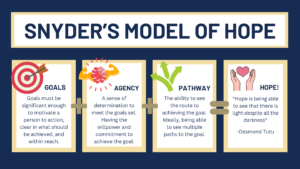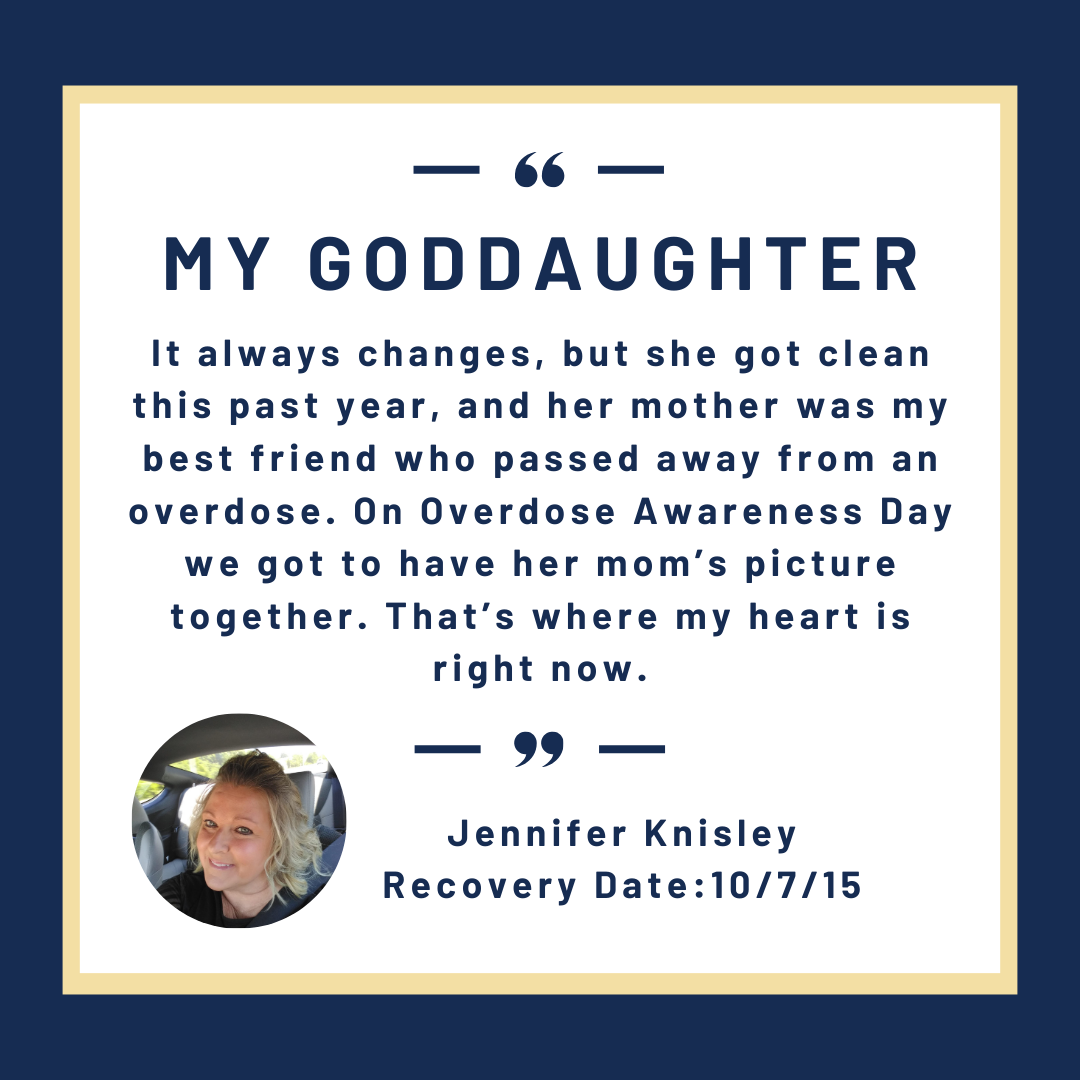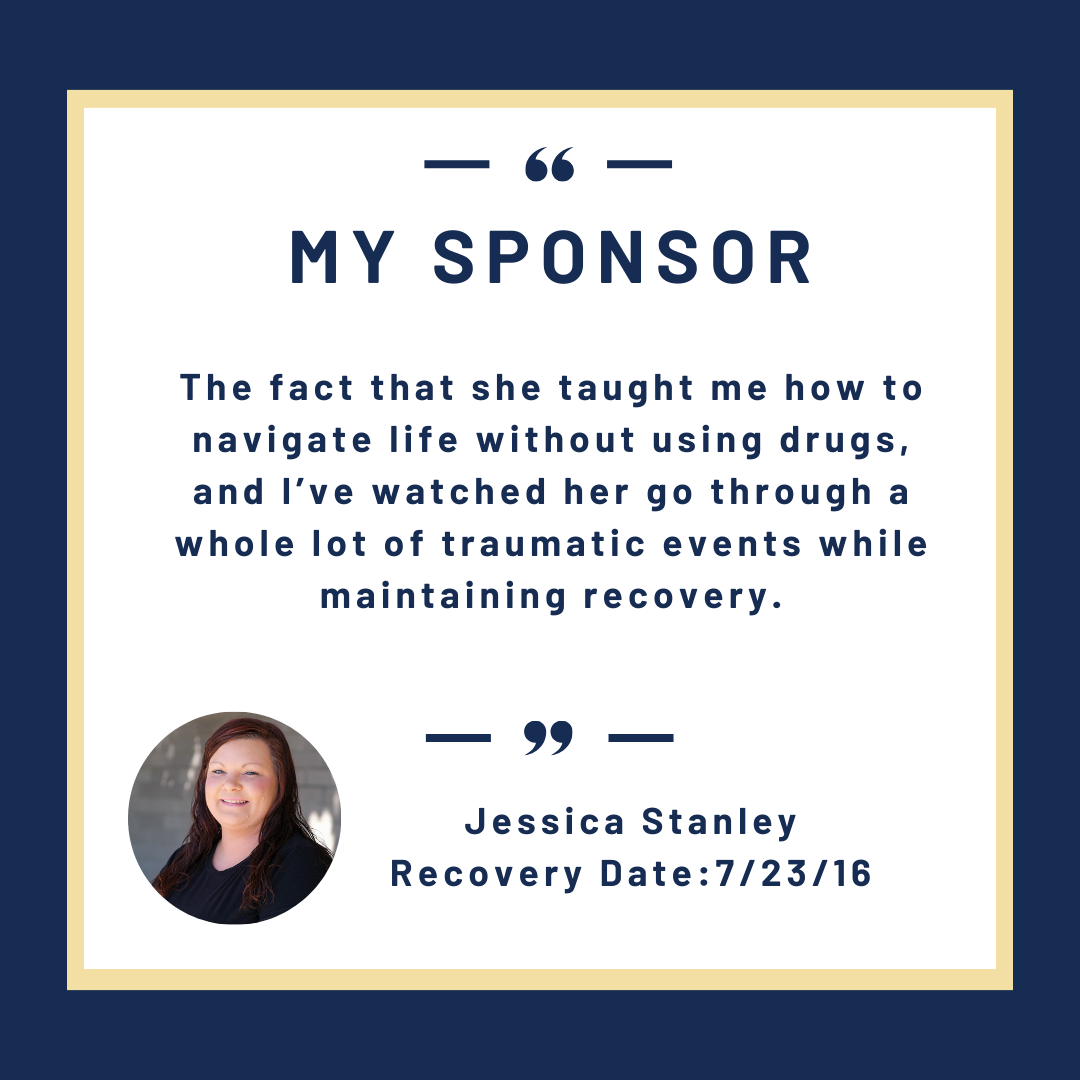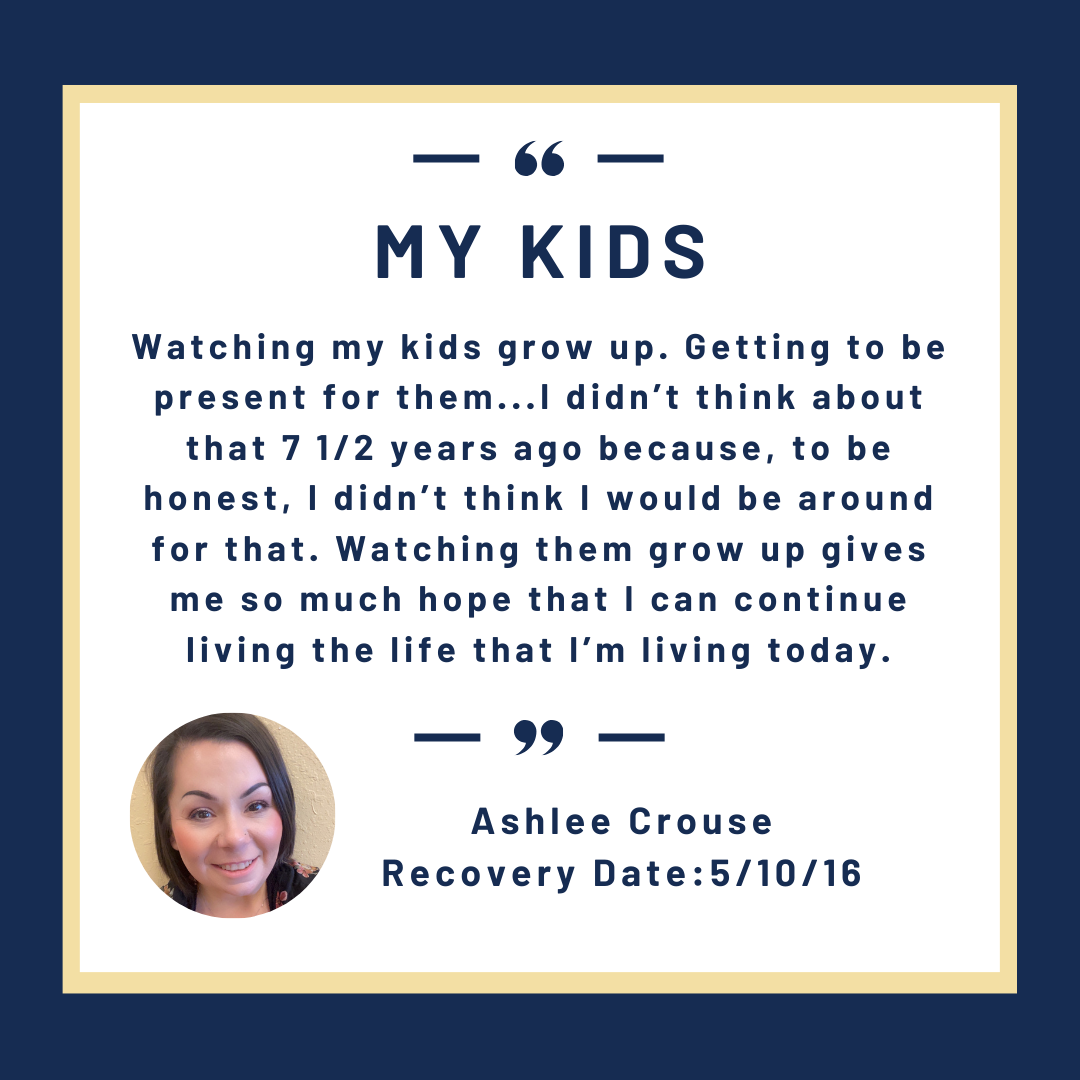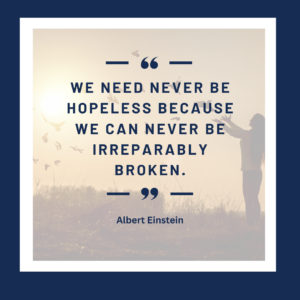
Hope is an essential part of the recovery process. In fact, it is so important that SAMHSA listed it in their 10 Guiding Principles of Recovery. SAMHSA’s Working Definition of Recovery states:
Recovery emerges from hope. The belief that recovery is real provides the essential and motivating message of a better future—that people can and do overcome the internal and external challenges, barriers, and obstacles that confront them.
Studies have shown that individuals with hope are better equipped to deal with the challenges and obstacles presented by the path to recovery. One study found that those who have hope that their situation will improve are more adaptable and better at finding solutions to the problems they face. They also have greater success in generating strategies to achieve their goals.
In the scientific community, one of the most commonly accepted definition of hope, Snyder’s Model, consists of three parts: goals, agency, and pathways.
In other words, setting a clear, attainable goal, committing to achieving that goal no matter what, and being able to find multiple ways to achieve it gives a person hope. That hope, in turn, gives them the motivation to overcome the obstacles that they encounter along the way.
For those who are looking to find or sustain recovery and struggle with finding hope, Metro Drug Coalition’s free recovery coaching program can aid individuals in discovering hope as defined by the Snyder Model. Recovery coaching empowers individuals to create a wellness plan and set goals (Goals from Snyder’s Model) then find the resources to achieve those goals (Pathways from Snyder’s Model). Recovery coaches hold coachees accountable to their goals and help them find their motivation (Agency from Snyder’s Model). Learn more about MDC’s free recovery coaching here.
Hope can come from a variety of sources including family, peers, role models and mentors, and even a person’s experiences overcoming past obstacles.
In recognition of the importance of hope in the recovery process, we asked MDC staffers to share what gives them hope.

